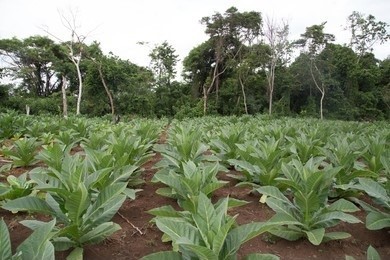Nicotiana Plant Tissue Culture

Nicotiana plants belong to the Solanaceae family and are annual or perennial plants, often with mucilaginous pilose. There are about 60 species in this genus, mostly in the Americas, with a few in Oceania, where some cultivars are used to make cigarettes and tobacco, and the leaves contain nicotine.
Nicotiana plants have medicinal, industrial, health, and beauty values, and the residues of the stems and leaves can be used as insecticides. And the protein extracted from the leaves has a higher nutritional value than any milk protein, while the nicotine content has antiseptic and hemostatic functions.
Tissue culture service
At present, Nicotiana plants are generally reproduced sexually, but the reproduced seedlings are uneven, prone to mutation, and susceptible to pathogens, resulting in the occurrence of many diseases and degradation of quality. Therefore, Lifeasible has established a rapid propagation system by using young leaves and other tissue cultures as explants, which means that the excellent traits of good varieties can be maintained, pests and diseases can be reduced, and high yield and superiority can be achieved, providing high-quality Nicotiana plant seedlings for production and medicinal research.
- Nicotiana tabacum L.
- Nicotiana rustica L.
- Nicotiana glanuca Graham
- Nicotiana alata Link & Otto
Growth regulating substances are indispensable in the culture medium, although in very small amounts, they play an important regulatory role in the induction of healing tissues in Nicotiana plant explants, among which growth hormones and cytokinins are the most commonly used. Lifeasible will use 6-BA in combination with 2,4-D during the tissue culture of Nicotiana plants, which can more effectively induce healing tissue formation.
Since different explants have different abilities to induce healing, and different media have different abilities to induce healing, to reduce the influence of objective factors on the ability of explants to induce healing, Lifeasible uses media and culture methods specifically for Nicotiana plant healing tissue culture, which can improve the induction rate of Nicotiana plant healing tissue to ensure good growth, high degree of dedifferentiation and good laxity.
You want to sign a confidentiality agreement.
You have a specific plant species for your experimental needs.
You have a reliable and relevant cooperation project to discuss.
You are very interested in our project or have any questions.
You need an updated and detailed quotation.
For research or industrial use.



